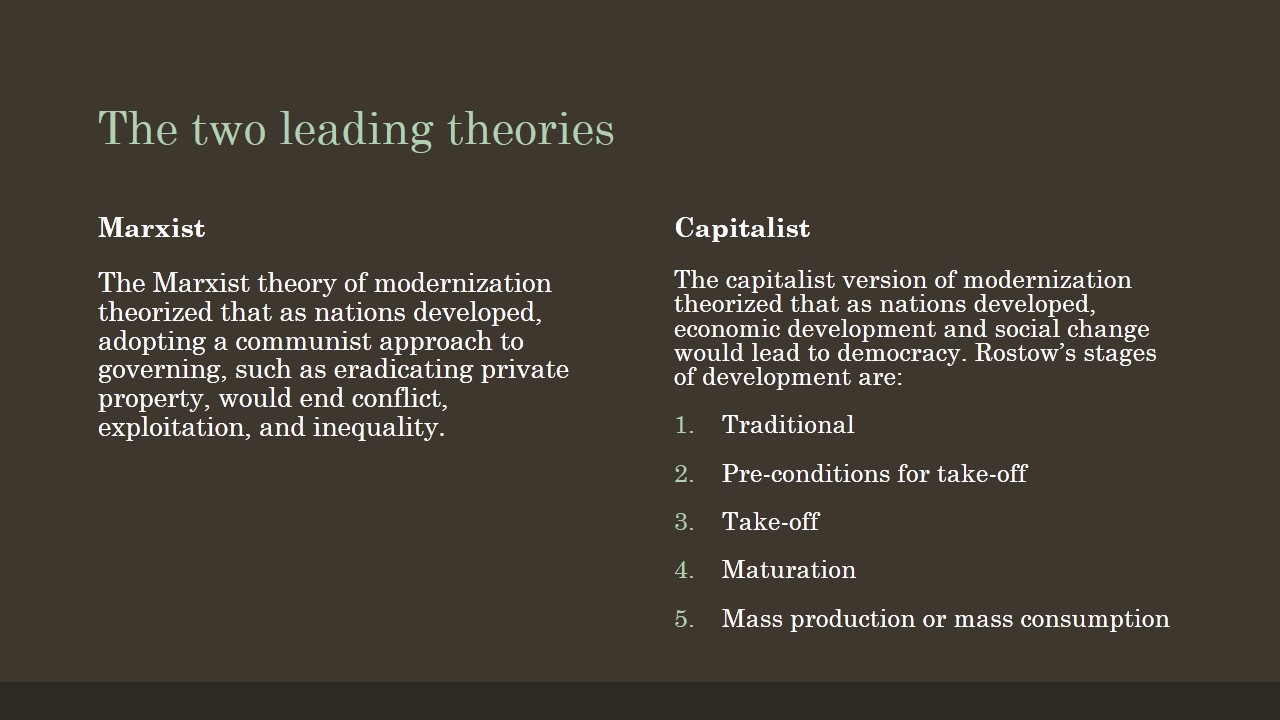During the nineteenth century a sense of patrie, or commonality, brought the French together. A coup d’etat engineered by Louis Napoleon in 1851 ended the Second Republic and gave birth to the Second Empire.
Napoleon III promised to reform but did little to improve the standard of living of the working class. Population expansion and industrial growth were smaller in France than in many other western European nations. The Franco-Prussian War ended the Second Empire.
The Third Republic was born amid defeat and civil strife. Antagonism between republicans and monarchists, and scandals such as the Dreyfus affair, mirrored serious rifts in French society.
Garibaldi, Victor Emmanuel, and Cavour led Italy to union. By 1870, only Trent and Trieste remained as part of Italia Irredenta. Public opinion in Italy favored the new kingdom, but deep divisions between Catholics and anti-clericals and between north and south would pose difficulties for the new government. In the late 1800s Italy industrialized, but industrialization was unevenly distributed. At the same time, efforts at imperialist expansion went badly.
Bismarck, architect of the German state, was a ruthless genius completely loyal to the Prussian Crown. He used unorthodox policies to secure his own ends. Between 1864 and 1870 Prussia acquired Schleswig-Holstein, defeated Austria in a brief war, and won a stunning victory over France in the Franco-Prussian War. As a result of this war, France was forced to cede Alsace-Lorraine and pay a massive indemnity.
As chancellor of the German Empire from 1871 to 1890, Bismarck created a uniform monetary, legal, and judicial system and helped strengthen German militarism. In the late 1880s he introduced accident, health, and later old-age insurance for workers.
The Habsburg Empire, ruled from 1848 to 1916 by Francis Joseph, consisted of many national minorities. The dual monarchy of Austria-Hungary was created in 1867 to appease nationalist aims of Magyars. However, the formula left the many other national minorities in the empire dissatisfied.
Between 1825 and 1914 modernization proceeded slowly in Russia. Under Nicholas I, Russia became involved in the Crimean War, a balance-of-power conflict over the weakening Ottoman Empire.
Czar Alexander II embarked on reforms, abolishing serfdom in 1861 and reforming the legal and judicial system. His assassination in 1881 led his successors to return to a policy of repression. Intellectual ferment grew into protest movements. Political activity heightened in the early 1900s when Lenin founded the Bolshevik party.
Defeat in the Russo-Japanese War in 1905 sparked an uprising that forced Nicholas II to summon a Duma, or legislative assembly. But the dumas that met between 1906 and 1914 had little power, although czarist ministers such as Stolypin did manage to introduce some reform.
In the nineteenth century the United States expanded, building communication and transportation networks across the continent. By 1914 the United States was an industrial nation with a large labor pool provided by immigrants from Europe. As a result of its war with Spain, the United States became a major world power with territories in the Caribbean and the Pacific.

